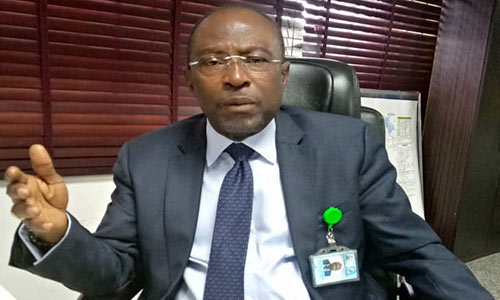Dearth of Air Traffic Controllers: NAMA converts non-technical staff to technical staff

…as NATCA makes demands for improved staff welfare, CoS

The Nigerian Airspace Management Agency (NAMA) has converted some non-technical staff to technical staff to fill the void created by an alarming shortage of Air Traffic Controllers (ATCs) in the system.
The Air Traffic Control Service (also known as Air Traffic Management) is one of the most important services provided by the Agency in the critical role of aiding aircraft navigation in the airspace.
It would be recalled that the Nigerian Air Traffic Controllers’ Association (NATCA) had raised alarm in the wake of a lingering shortage of ATCs early this year, a situation it blamed on poor Condition of Service and unpaid allowances.
As a result, NATCA disclosed that many of its members had fallen sick due to working long hours while standing on the control towers; many have died while some have resigned out of frustration.
Speaking at the 50th Annual General Meeting of NATCA in Abuja today, 20th October 2021, the Managing Director of NAMA, Capt. Fola Akinkuotu said the Agency was worried over the death rate recorded among ATCs in the last few years in the country, adding that the Management was alive to its responsibility in the area of staff welfare.
According to him, “NAMA has converted non-technical staff in the system to technical staff while most of the retired ATCs have been also re-engaged after their retirement in a bid to address the issue of shortage of ATCs.”
He also disclosed that the government has provided funds for the upgrade of safe towers in the country, adding that NAMA was committed to living up to its critical responsibility of making the airspace safe for flight navigation.
He, however, called on the leadership of NATCA to always choose the option of dialogue to express their grievances, even as he commended them for their selfless service.
In his welcome address, the president of NATCA, Abayomi Agoro, called on the government to reciprocate the good gestures and sacrifices made by the service providers and safety personnel in the aviation industry as appropriate, by looking into the various challenges in the industry with a view to finding lasting solutions to them.
He reiterated their MAYDAY call for the review of the ATC scheme of service as the ATC Scheme of Service was an issue that has lingered for too long adding that it will not be a bad idea if the issue was revisited with a view to drawing the attention of the relevant authorities to have it resolved once and for all.
“NATCA Executive Council took it up head-on and we sincerely cannot shy away from admitting that identified solution to the problem required several journey and special interventions.
“The numerous efforts deployed to the issue almost yielded the required result when a draft was agreed by all parties at a final meeting. However, in a twist of situation, some of the agreements were wrongly captured in the document released to NAMA as ATC Scheme of Service. This came to us as a rude shock, and we have reacted to it accordingly in a letter to the Ministry of Aviation and other relevant agencies of government,” he said.
Agoro, however, expressed concern over the seemingly stalled NAMA Condition of Service (CoS), stressing that a major stakeholder in NAMA, NATCA drew the attention of the appropriate authorities to vital issues that challenge professionalism and threaten industrial harmony within the Agency in the negotiated draft of the staff Condition of Service (CoS).
“We raised these concerns purely in the interest of justice, equity, and fairness. The roles of every professional in NAMA and the nature of licenses held by them are clearly stated in the Nigerian Civil Aviation Regulation (NCAR) Part 11. We, therefore, urge NAMA management and all the relevant unions to urgently address this issue,” he said.
He urged the management of the Nigerian College of Aviation Technology (NCAT) Zaria to create the enabling environment to iron out the welfare issues raised by NATCA raised with the former rector.
Agoro stressed the need for improvements on the state of CNS facilities in NAMA and the need to review ATCO’s retirement age/ length of service.
“Going by the recommendation of a committee set up by NCAA as captured in the communiqué released at the last AGM, NATCA in conjunction with the Directorate has formally requested an upward review of the age validity for ATC license holder from sixty (60) to sixty-five (65) years. This has been granted by the DG and we sincerely thank the Authority for it,” he said.
Agoro said there was the need to match the length of service with age to mitigate the acute shortage of Air Traffic Controllers, especially with the emerging airports and airlines.
He noted that scheduled training for 2020 was hindered by the Covid but said NATCA has engaged the Directorate of Operations to resume training for both local and international.
“We note with satisfaction the recently graduated Radar course at NCAT. The Area Airways Procedural (ACC-39), as well as AC-72 and 73, are ongoing. Basic PANS Ops is also ongoing in Cairo and CPDLC has been approved. We commend the Management for this feat and wish it continues in that manner,” Agoro acknowledged.
The theme of the 50th AGM is ‘Air Traffic Management, Safety, and Emerging National Security Challenges.’







